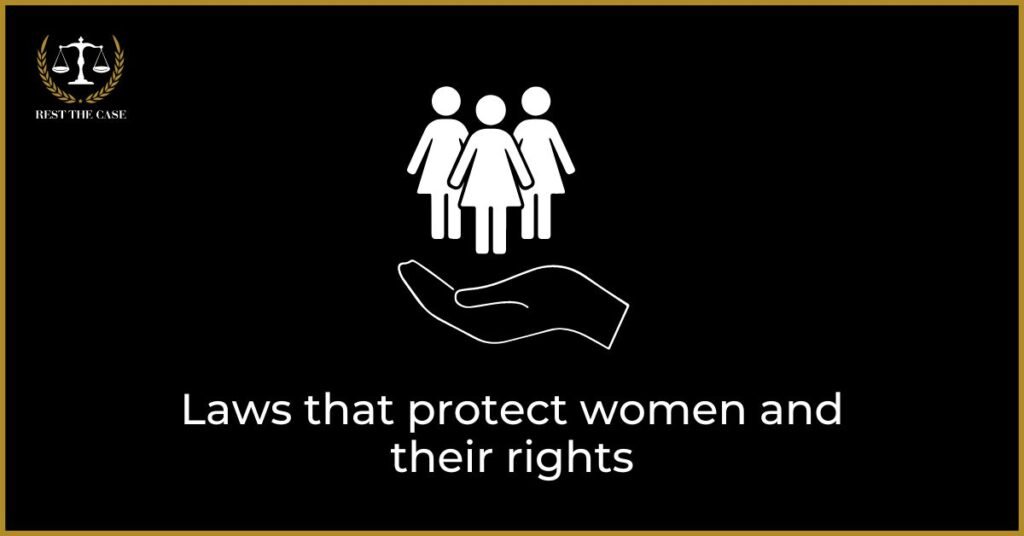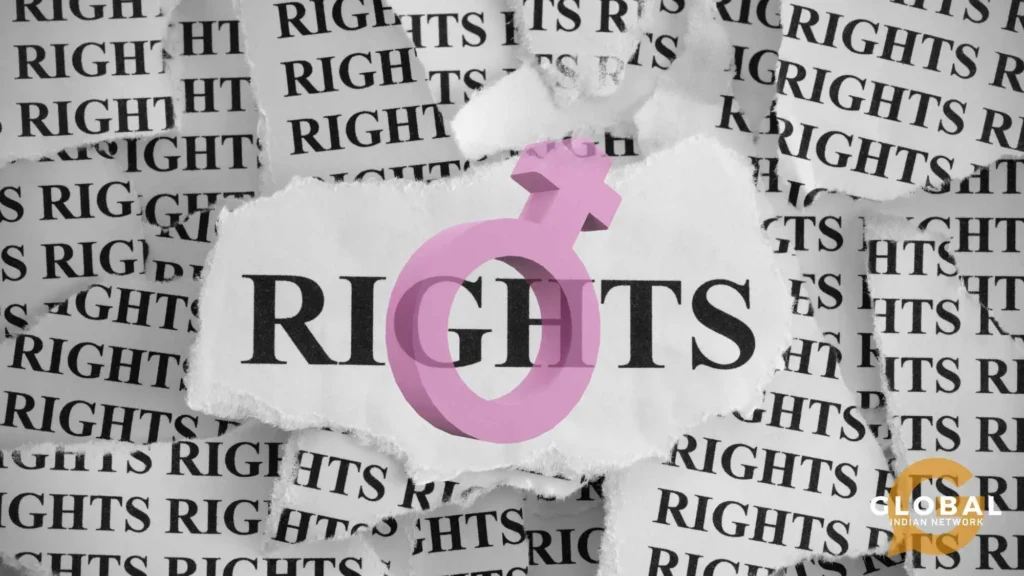Understanding Women’s Rights and Legal Protections in India

India has a rich and complex legal history that has evolved alongside its diverse cultural and social fabric. Over time, the legal system has seen significant transformations—but not always in ways that have benefited women.
Historically, women in India have faced systemic disadvantages under the law. While progress has been made through various reform movements and landmark legal changes, several laws still remain discriminatory or inadequately enforced. These gaps continue to impact women’s access to justice, safety, and equality.
In recent years, there has been a growing push to reshape India’s legal framework to better reflect gender justice and human rights. While these efforts have led to meaningful reforms, much work remains to ensure that all women—regardless of class, caste, or region—are protected and empowered under the law.
This article explores the current status of women’s rights in India and the key laws in place that are meant to protect and uphold those rights. It also highlights areas where change is still urgently needed.
Rights of Women in India

Right to Maintenance:
Every married woman has the right to receive support, or in legal terms, maintenance from her husband even if they are not living together. This right is protected by laws for women in India such as, the Hindu Marriage Act, 1955 (HMA) and the Protection of Women from Domestic Violence Act, 2005 (DVA). As, per Section 24 of the HMA either the wife or husband can seek monetary assistance. To be eligible, for this support the petitioner must show that they do not have a source of income to support themselves
Right to Equal Pay:
One of the most important labour rights is the concept of equal pay for the same amount or equal amount of work done. In India the Equal Remuneration Act of 1976 (ERA) is the primary law that ensures both male and female workers are paid equally for doing work which are the same for both. The ERA also prohibits discrimination, against women based on gender in employment related matters like recruitment and promotion.
Right to Dignity and Decency:
Every woman should lead a life of respect, equality and decency, free from any form of fear, force, violence or discrimination. According to Article 21 of the Constitution every citizen, including women is entitled to the right to life and dignity. Section 354A of the Indian Penal Code criminalizes harassment. The Sexual Harassment of Women, at Workplace (Prevention, Prohibition and Redressal) Act, 2013 establishes a framework for women to report incidents of harassment in their workplace and seek measures to address them.
Right against Domestic Violence:
Some or the other day, it’s always in the news that a daughter, wife, daughter-in law faces harassment and abuse, not only sexual but physical and mental too. DVA provides protection of women from domestic violence. If any woman suffers such abuse and violence, section 12 of DVA becomes applicable.
Rights at Workplace:
Each and every woman is entitled to a work environment that’s safe and conducive, to their well-being. It is crucial that they are free from any form of discrimination or harassment. The Constitution along with legislations such as the Equal Remuneration Act of 1975 the Maternity Benefit Act of 1961 and the Sexual Harassment of Women at Workplace (Prevention, Prohibition and Redressal) Act of 2013 guarantees these rights to women.
Right against Dowry:
Lots of women are not able to get married because of unnecessary dowry demands from the other side. The Dowry Prohibition Act, 1961 prohibits the dowry system, i.e. both, the giving and taking of dowry. Every woman in this country has the right to be free from dowry demands, harassment and abuse.
Right to Free Legal Aid
Where a woman cannot pay for her legal support, she will have the opportunity of attaining it free of charge. Under the Legal Services Authorities Act, 1987, this is regarded as a right. The Legal Services Authorities Act provides for establishment of legal services authorities at the central, state and district level.
Right to Self-Defence
Under Section 100 of the Indian Penal Code (IPC), every person, including a woman has the right to protect her body from any violence, attack or assault which can lead to apprehension of death, grievous hurt, kidnapping etc.
Laws for Women in India

Here’s a well-organized and up-to-date list of important laws for women in India, grouped by categories and written in a way that’s suitable for your website TheWoman.in. You can copy-paste this directly or let me expand each section for a full article format.
Key Laws for Women in India: Your Legal Rights Explained
India has enacted several important laws to safeguard the rights and dignity of women. While implementation remains a challenge, these laws serve as vital legal tools to promote equality, safety, and justice.
🔹 1. Protection Against Violence & Abuse
1. Protection of Women from Domestic Violence Act, 2005
Provides protection to women from physical, emotional, sexual, and economic abuse within domestic relationships. It includes provisions for restraining orders and maintenance.
2. The Dowry Prohibition Act, 1961
Criminalizes the giving or receiving of dowry. Also punishes harassment or violence related to dowry demands.
3. Indian Penal Code, Section 498A
Protects women from cruelty by husbands or in-laws, particularly in relation to dowry or domestic abuse.
4. Sexual Harassment of Women at Workplace (Prevention, Prohibition and Redressal) Act, 2013
Mandates every workplace to have an Internal Complaints Committee to address sexual harassment. This law stems from the Vishaka Guidelines laid down by the Supreme Court.
5. Criminal Law (Amendment) Act, 2013
Strengthened laws related to rape, acid attacks, stalking, and voyeurism. This came after the Nirbhaya case.
🔹 2. Reproductive and Health Rights
6. Medical Termination of Pregnancy (MTP) Act, 1971 (Amended 2021)
Allows women to terminate pregnancies under certain conditions, including contraceptive failure. The 2021 amendment increased the upper gestation limit and recognized the rights of unmarried women.
7. The Maternity Benefit Act, 1961 (Amended 2017)
Provides for paid maternity leave of 26 weeks for working women in establishments with 10 or more employees. Also covers crèche facilities and medical bonus.
🔹 3. Equality & Non-Discrimination
8. Constitution of India – Article 14, 15 & 16
Guarantees equality before law and prohibits discrimination on grounds of sex. Also mandates equal opportunity in public employment.
9. Equal Remuneration Act, 1976
Ensures that women and men receive equal pay for equal work. Also prohibits discrimination in hiring.
🔹 4. Child Marriage & Trafficking
10. Prohibition of Child Marriage Act, 2006
Declares child marriage illegal and voidable at the option of the girl. It also provides protection and maintenance rights.
11. Immoral Traffic (Prevention) Act, 1956
Aims to prevent trafficking and sexual exploitation of women and girls.
🔹 5. Property & Inheritance Rights
12. Hindu Succession Act, 1956 (Amended 2005)
Gives daughters equal rights in ancestral property, on par with sons.
13. Muslim Personal Law (Shariat) Application Act, 1937
Applies to Muslim women regarding inheritance and marriage; however, reforms are still debated in this area.
🔹 6. Cyber Safety
14. Information Technology Act, 2000 – Sections 66E, 67, 67A
Punishes online harassment, including sharing of private images, cyberstalking, and sending obscene content.
🔹 7. Marriage & Divorce Rights
15. Hindu Marriage Act, 1955
Provides grounds and procedures for divorce, maintenance, and alimony for Hindu women.
16. Muslim Women (Protection of Rights on Marriage) Act, 2019
Criminalizes instant triple talaq (talaq-e-biddat) and provides for maintenance and custody rights.
✅ Conclusion
While these laws aim to protect and empower women, awareness remains low—especially among rural and marginalized communities. It’s crucial for every woman to be informed of her rights and to advocate for stronger implementation and reform.
